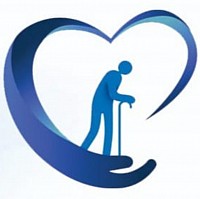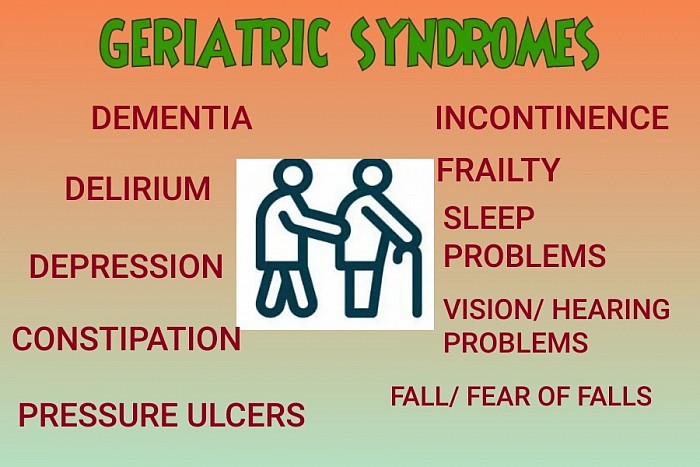Geriatric Medicine- Successfully Addressing Challenges in Senior Care
What is Geriatrics?
Geriatric medicine is a medical specialty dedicated to caring for the elderly.
Since elderly patients have unique set of problems which comprise of medical, socioeconomic and psychological aspects, planning their care requires a specialized approach.
Geriatricians are primary care physicians trained to identify and treat geriatric syndromes (set of diseases commonly seen as a person ages) and medical conditions affecting elderly.
What does a Geriatrician do?
Geriatricians can act as Primary Care Providers (PCP) for elderly patients who suffer from multiple health problems.
That means, if you have an ailment and you are not sure, which specialist to see, a geriatrician can either treat you himself or can coordinate your care by referring to the concerned specialist
Geriatricians conduct functional, cognitive and physical examinations to determine optimal treatment approach for caring an elderly patient. They act with the goal of preserving functional status and ensuring quality of life to the extent possible
At times of serious medical conditions or when you are unsure about the outcome of an active intervention concerning care of an elderly patient, an expert geriatrician can greatly assist families in taking decisions..
Atypical Presentation of diseases
As a person ages, there occurs decline in functions of different organ systems. As a result, at times of illness, first organ affected may be the weakest system. Elderly person may suddenly deteriorate on exposure to minor stress like a fever/loose stool since they have limited functional reserves to cope up with the stressful event.
An elderly person with pneumonia may present with confusion and restlessness rather than classical fever with cough. Atypical presentation of diseases are common in elderly patients.
Early detection and treatment of diseases is crucial for a successful outcome
Geriatric Syndromes: Common And Often Related Medical Conditions in Elderly
Geriatric syndromes are a group of disorders that are frequently found in senior persons and are brought on by both underlying medical issues and the natural changes that come with aging.
Every older adult can be found to have geriatric syndromes, differing in severity. When experiencing a significant sickness or a stressful event like surgery or hospitalization, it becomes problematic.
Diseases constituting geriatric syndromes are often related. One may worsen another and finally result in gross deterioration of function and cognition
Sleep Problems in Old Age
Sleep disturbances are one of the major health complaints of older adults which is often distressing to patients and their care givers
Common causes of sleep disorders include age related changes that affect sleep quality, frequent awakenings due to noise, underlying diseases like depression, diabetes, urinary problems, breathlessness, neuropathy etc
Not recognizing and appropriately treating sleep disorders may result in deterioration in quality of life, development of psychiatric disorders, worsening of memory problems and increased risk of morbidity and mortality
Psychiatric Problems In Elderly Patients
Acute confusion or Delirium is the most common psychiatric problem which is associated with increased risk of morbidity and mortality in older patients. The causes for delirium includes infections, electrolyte abnormalities, polypharmacy, hearing/ vision impairment, history of alcohol use etc
Dementia is a very common problem among older people. It is a chronic disease with progressing course. It gradually affects the functioning of a person and progresses to a state where a person needs assistance in fulfilling his basic needs
Depression is another problem which occurs in elderly people as a result of social ,economic and disease conditions. Once recognized depression can be very effectively treated in elderly patients. Treatment should be done under supervision of an experienced psychiatrist.
Falls In Elderly
Falls are a common problem in elderly patients which results in high morbidity and mortality.
Cause for falls are multi factorial and needs assessment to prevent occurrence.
A fall is often said to be the “Beginning of End” in geriatric age group. A fall may occur due to a mechanical cause like tripping or as a result of underlying medical condition like diabetes, hypotension, stroke,
Parkinson disease, dementia etc which results in impaired perception. Simple interventions can reduce the events of falling.
Problem of Polypharmacy in Elderly: Are you taking a Lot of Medications?
Polypharmacy is more common in elderly people due to chronic diseases and multiple medications. Problem with polypharmacy includes overdose, side effects, complications of diseases
Tips to avoid Polypharmacy:
> Be under the care of a Primary care Doctor (whom you trust)
> Do not hesitate to clarify your doubts regarding medication use with doctor before leaving the clinic
> You should be aware of the medications you are taking and why (you can ask the Doctor/ Pharmacist who can help you)
> Avoid un necessary medications like over the counter drugs without knowledge of your doctor
> If you suspect any newly added medication is causing trouble, get in touch with your doctor at the earliest
> It is advisable to take your MEDICATION BOX on every Doctor visit, so as to make sure you are on right medications
Comprehensive Care Services for Elderly Health
Geriatric physician: Out patient Clinic for Elderly care Timing: 4pm to 6pm (Mon- Sat)
Home Health Care Service: Geriatric Specialist Consultation for Bed ridden patients with Mobilization difficulties. .
Palliative care service: symptom-based treatment for individuals with cancer, dementia, and other terminal illnesses.
Online Tele Consultation service: Get doctor's help through Tele medicine. (For Follow up Patients only)
Diabetes, hypertension, hypercholesterolemia management
Memory clinic
Senior Citizens Clinic is a Geriatric specialist facility founded in 2020 at Morkulangara, Changanassery, Kerala, that provides complete Geriatric care.
It is led by Dr. Aswin Rajeev, who is a Geriatric Specialist passionate in caring elderly patients.



